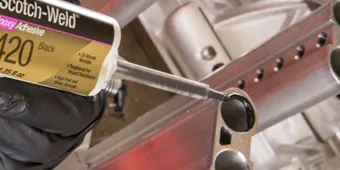Introduction to Synthetic Resin Adhesives
The building business was completely transformed by the introduction of Synthetic Resin Adhesives. These adhesives are effective in packing, long-lasting, and multipurpose. They consist of several chemicals. These days, resin-based products are a necessary part of modern manufacturing and may be found in everything from high-end to bulky packaging.
Types of Synthetic Resin Adhesives
Epoxy Resin Adhesives
Epoxy resin adhesives are renowned for having outstanding bond strength and resilience to abrasive environments. Applications needing strong adhesion and structural stability, such joined concrete, metal, and plastic, frequently employ it.

Polyurethane Adhesives
Because polyurethane adhesive is so strong and flexible, it’s perfect for packaging that comes in different widths. It is used in construction for joint coverings and wood fastening to various components.

Acrylic Adhesives
Acrylic adhesives are frequently used in construction to assemble furniture, affix decorative panels, and make windows. They are prized for their quick speed and strong adherence to a variety of materials, including metal, glass, and ceramics.

Cyanoacrylate Adhesives
Super glue, or cyanoacrylate adhesives, are thought to be advantageous due to its quick cure and great resilience. In construction, it is widely used to bind small pieces, repair cracks, and fuse soft materials together.

Properties of Synthetic Resin Adhesives
Resin-based adhesives exhibit several key characteristics that make them ideally suited for construction applications.
Strength
One of the number one blessings of artificial resin adhesives is their exquisite bonding strength, which allows them to create robust connections among numerous materials.
Durability
Synthetic resin adhesives are recognized for their sturdiness, resisting degradation from exposure to moisture, chemical compounds, and environmental elements over time.
Flexibility
Many synthetic resin adhesives offer flexibility, permitting them to resist the stresses of motion and vibration with out dropping their bond energy.
Resistance to Moisture and Chemicals
It is common for synthetic resin adhesives to be designed to withstand chemical exposure and moisture, which qualifies them for usage in outdoor and industrial settings.
Applications in the Construction Industry
Synthetic resin adhesives locate several packages in the construction industry, ranging from bonding materials to structural repairs.
Bonding Materials
Synthetic resin adhesives are used to bond a wide variety of substances, together with timber, metal, concrete, and plastic, permitting the construction of long lasting and resilient systems.
Structural Repairs
In cases in which traditional creation techniques are impractical or costly, artificial resin adhesives can be used to restore and toughen current systems quick and efficaciously.

Flooring Installation
Synthetic resin adhesives are typically used in floors set up, imparting a robust and dependable bond between the floors material and the substrate.

Wall Paneling
Synthetic resin adhesives are used to connect wall panels and decorative factors, supplying a steady and aesthetically pleasing end to indoors areas.

Advantages of Synthetic Resin Adhesives
In many production processes, synthetic resin adhesives are the favored choice due to their numerous advantages over traditional bonding methods.
Fast Curing Time
Synthetic resin adhesives usually have a fast curing time, bearing in mind rapid assembly and set up of production additives.
High Strength
Synthetic resin adhesives provide high bond electricity, making sure the structural integrity and sturdiness of constructed factors.
Versatility
Synthetic resin adhesives can bond a wide variety of materials together, imparting versatility and versatility in creation initiatives.
Resistance to Environmental Factors
Synthetic resin adhesives are resistant to moisture, chemicals, and other environmental factors, making them suitable for use in diverse climatic conditions.
Real-Life Applications
Several case studies highlight the effectiveness and flexibility of synthetic resin adhesives in production tasks international.
Challenges and Limitations
Despite their many advantages, artificial resin adhesives additionally face demanding situations and limitations, such as restricted temperature tolerance and capacity health risks in the course of software.
Future Trends and Innovations
The destiny of artificial resin adhesives in the construction enterprise looks promising, with ongoing research and improvement targeted on improving their overall performance, sustainability, and safety.
Conclusion
In conclusion, synthetic resin adhesives have revolutionized the development enterprise by way of supplying superior bonding energy, durability, and versatility. From bonding materials to structural maintenance, those adhesives play a crucial role in cutting-edge creation practices, paving the manner for innovative and sustainable constructing solutions.
Unique FAQs
- Are synthetic resin adhesives suitable for outdoor applications?
- How do synthetic resin adhesives compare to traditional adhesives?
- What safety precautions should be taken when using synthetic resin adhesives?
- Can synthetic resin adhesives be used underwater?
- Are there eco-friendly alternatives to synthetic resin adhesives?


